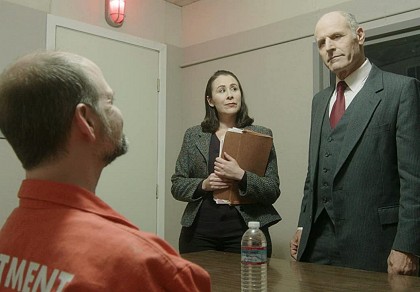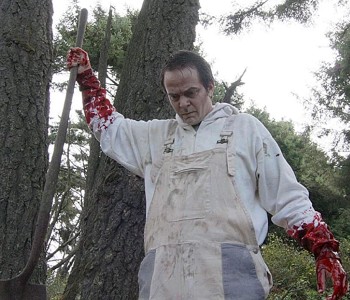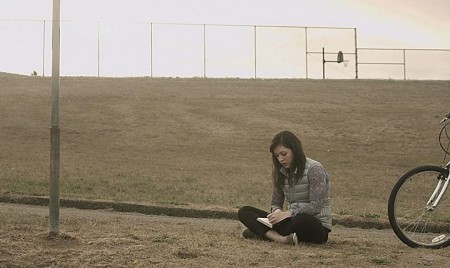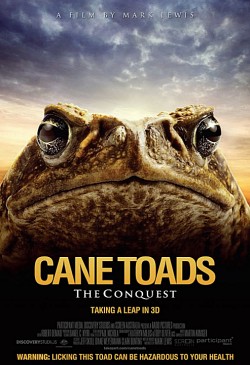|
Your new movie Confession
- in a few words, what is it about?
As
far as plot goes, it concerns two detectives who must determine if they
have arrested God for a particularly gruesome multiple murder. That’s
the simplest way of explaining it because it references the more
procedural, crime-drama aspect of the film while also alluding to the fact
that it is anything BUT a typical crime drama. Not a lot of serious films
are willing to include the possibility of God as one of the major
on-screen characters.
Among many other
things, Confession
touches heavily on the subject of religion - so what kind of research did
you do regarding that aspect of your movie? I
did a Q&A after the cast and crew screening for which I had asked
everyone to bring one or two people who had no connection to the making of
the film so I could get a clue how it played for strangers, and the first
question I got was “what were my personal religious beliefs?” At that
time, I said that my personal views were unimportant, but I wanted to
stress that I stood behind every comment about religion made in the film.
Since a teenager I have actively read and contemplated multiple religions.
I have read the Bible, in several versions. I have read much of the
Bhagavad Gita, studied the Tripitakas, read portions of the Quran, and
even perused the Book of Mormon. That formed the overview that inspired
the script. During the actual writing I did additional specific research
into biblical archeology and history; interpretive tenets and how they
have changed through the years; whatever was necessary so that if an
opinion is stated such as “the five Books of Moses were not written by
Moses” I had actual evidence to support it. Originally, I included all
of that support in the script, but I cut most of it out because I was
making a movie, and telling a story, not filming an extended lecture. Many
people would argue I didn’t cut out enough. (Other)
sources of inspiration when writing Confession? Before
the internet, there wasn’t a lot of access to screenplays – they were
rarely published, and they weren’t widely disseminated. So, I used to go
down to the Writer’s Guild in Hollywood where they had a reading
library; I could sit at a table and read any screenplay they had on file,
and I would do that from opening until closing. One of the many scripts I
read was Blatty’s first draft of The Exorcist. My favorite scene was the
initial interview between Father Karras and the demon. It was lengthier in
the first draft, subsequently edited down. And I wished they hadn’t cut
it. The notion of having a discussion with an entity about conflicting and
contradictory aspects between concepts of Good and Evil was far more
stimulating to me than just spinning your head around. And Blatty’s
scene didn’t really go in that direction either because he was telling
his story within the confines of a very specific faith; but the idea of a
longer discussion that did go
in that direction always stuck with me. When I first conceived of
Confession it was going to be a play about a priest and a demon,
really debating. But I always tend to ask myself, “is that unique
enough?” So, I kicked the idea even further out into left field.
 |
While
writing, to what extent could you actually identify with McCallum - or at
least the entity possessing him? More
so than many characters I have written, McCallum shares many of my own -
shall we say - severe views of human nature and the absurdity of
humankind. And the questions he throws out there, challenging everything,
are obviously all questions that I, myself, felt it necessary to find
answers to during the course of my life. You also did the
production design for Confession
- so do talk about that aspect of your movie? As
the designer for Confession I knew there were two massive
challenges. First was the budget, or lack thereof, and second was the fact
that we were filming in Northern Humboldt County which is rural, with
amazing redwood forests, and quaint Victorian houses, and that is the
exact opposite of where the story unfolds. That required not just careful
location scouting and shot compositions – keeping the “local” color
out of the frame – but it also required the use of digital matte
paintings and even forced perspective miniatures shot in camera. Because I
didn’t want it looking like lush redwood forests, let’s just say that
not all the trees you see in the film are real. And to achieve the look I
wanted, to have control over all of that, I also would need to build a
majority of my sets, which is where the lack of budget really hurt. I
wouldn’t be creating highly stylized sets – which would be fun – but
I would need to take one place and turn it into something it wasn’t. And
not have it be noticeable or call attention to itself. I also want every
setting to support the characters and themes, so there are subtle clues
strewn throughout the whole film that are only meant to register on a
sub-conscious level. For
instance, every
scene has some black and white elements, because that’s how most people
see the world – in terms of black and white. Another
obvious example is the multiple interrogation rooms which reflect the
story's progression; the first one is simple and clear, like they expect
the case to be, but the one in the last half has more angles, more
conflicting textures, and even the walls have a puzzle-like pattern of
tiles. And then the nightmare interrogation room at the end. You can only
ensure such details by building your set from scratch. And the script
called for over 60 locations, including police stations, hospitals, mental
health facilities, a prison, a morgue, a college campus, in addition to
various apartments, homes, numerous exteriors and a few places that could
only be considered “other-worldly”. Fortunately, I know how to stretch
a dime to do a dollar’s work because of my theatrical background. What can
you tell us about about your movie's approach to the horror and thriller
genres?
|

|
I
am a huge fan of both genres, especially as a form in which you can choose
to explore bigger issues and darker, more substantive themes. Most of the
scripts I have written fit into those two genres. But I knew from the
outset that Confession
was not really going to be either type of a film.
Or, I should say, only one type of a film. There were several sequences
that were more typical of a horror movie; some were shot and some I cut
before shooting, but I eliminated them all because I didn’t really want
something in there that looked at all clichéd, or like something seen a
hundred times before. Sadly, if someone approaches the film only wanting
to see a horror movie, or a straight thriller, they’re probably not
going to be happy with where the film is taking them. I hope maybe
they’ll give it a second chance once they know what they are in for;
they might be surprised how much more meaningful it becomes. A few words about your overall directorial
approach to your story at hand? In
the presentation I wanted it to be as grounded in reality and as
underplayed as possible. In contrast to the expansive nature of all the
things it was dealing with. I also took the approach that I didn’t
really want the audience to be too certain of what kind of a film they are
dealing with. That means the drama of some scenes is so muted that it
doesn’t feel “right” for the audience. Other passing moments are
shot in such a way as to impart an unexpected sense of dread. Thematically
the picture is about shaking foundations and I wanted to play with that a
bit in the actual direction and structure from the first shot on. Do talk about Confession's
key cast, and why exactly these people? I
was very fortunate in that Humboldt County has a thriving theatrical
community. There might only be 60,000 residents spread all around but
there are multiple venues and theater companies, in addition to Humboldt
State University, so it was easy to have over 80 people show up for
auditions that at least had some level of experience. That one of those
actors was a Tony-nominated professional like Cynthia Martells was the
best kind of icing on the cake! A friend had told her about the auditions,
she asked to read the script, and she liked it. Now the only problem with
using actors for whom acting is not their main profession is they usually
have other jobs they must accommodate. So, there can be scheduling issues
– particularly because we weren’t just filming on weekends. But at
least I could expect a large degree of enthusiasm and commitment from my
performers. I was also primarily concerned with finding actors who would
give the impression of real people, not Hollywood types. I didn’t want
someone who simply “looked like” the role. Real people, just doing
their jobs, caught up in this inexplicable situation; that’s what I
wanted.
|

|
What can you
tell us about the shoot as such, and the on-set atmosphere? When
the other producer, Carol Lang, offered me the opportunity to make a
micro-budget film, she always planned on shooting in the evenings, from
approximately 6:00pm to 11:00pm, and on weekends, much as the locals are
used to doing when they are rehearsing a community theater production. Principal
photography would stretch over 32 days, but when the hours were totaled up
it was actually only 18 shooting days. It also meant the majority
of the film would need to be shot night-for-day, although we only had
limited lighting equipment. Our cinematographer Matt St. Charles did
wonders with that, thankfully. Ironically, most of the scenes that
actually took place at night could only be shot during the day on the
weekends because of specific actor or location availability. We started
out with a pretty good-sized crew of volunteers but there were only a few
of us that had ever worked on a movie before, and by the halfway point of
shooting it was usually just the skeleton crew, plugging away. But I would
rather be surrounded by a few people you can count on then a hundred
people who disappoint. It wasn’t an easy shoot by any stretch of the
imagination and over half of it took place in a stuffy basement facility
where I was building all the interrogation rooms, a lot of the hallway and
police station stuff, or we were squeezed into the production offices
which I turned into multiple settings. But the core group got along well,
and we made the best of it. Anything
you can tell us about audience and critical reception of your movie? I
realized going into the project that the audience would be seriously
polarized. There would be those who could roll with the film being unlike
other movies, having more to say, taking the time to say it, and not
shying away from controversial elements – these would be the people who
could respect the film even if they did not like it or agree with it. And
then there would be those who wouldn’t be happy being challenged, or
having their beliefs challenged, or they just want every movie to be a
simple slasher or have lots of action, and those people would absolutely
HATE the film. So, we seem to be skating at an almost perfect fifty
percent between those who embrace the film for everything it attempts and
those who think its too much talking, and/or a load of crap. It could be a
lot worse; one of my main actors repeatedly worried that by filming this
script I was courting “suicide by zealot”.
Any
future projects you'd like to share? I
have several projects that are written and already in various stages of
pre-production. They run the gamut in terms of budget and that is the
deciding factor on which one shoots next; it all comes down to cash, and
of course the ending of a global pandemic. Since I do my own production
design, I can spend a lot of time developing visual concepts, make-up and
settings etc. while I am waiting. I have a folk-horror project called The Bight that’s already cast, pretty much crewed, and will
probably shoot next. Unfortunately, we lost the key location at the
beginning of the year so it’s budget just crept up again. With a little
more funding I have a unique post-apocalyptic tale called With Night
Dark that’s ready to shoot, and a very dark, sort of fairy-tale
horror film called Mysterious Wishes. And in case you can’t tell,
all of the next few films are going to be a lot more accessible and be a
lot more marketable than Confession. Although there’s nothing
typical, or lightweight about any of them. You actually
entered the filmworld as an art director and production designer - so what
can you tell us about that aspect of your career, and did you receive any
formal training on the subject? I
am one of those autodidactic folks; I am self-taught in everything I do.
It’s why I worship education and am such a fanatic about research. I got
into film design through a connection I had as a theatrical designer, and
I’d get hired because I would try to do ambitious things for
ridiculously small budgets. Just like in theater. I worked mostly in
documentaries, tasked with recreations. I have worked with Mark Lewis on a
number of his films, starting with the Emmy winning Rat, up to Cane
Toads: The Conquest, which was Australia’s first live action
feature filmed in 3D (as opposed to converted). That took me Down Under
for almost a year, and I was the only yank brought over. I’ve done
commercials and short films, and more than a few projects I do not include
on IMDb. In the low budget film arena there’s also been over half a
dozen films that I have quit during pre-production because it was obvious
to me that there was no way these projects would ever be completed. The
people just had no realistic idea what they were doing. It’s when I
decided that if I ever made my own films, I would also produce them
myself.
 |
What made you branch out
into writing and directing eventually? Ever
since high school I always thought of myself as a writer and a director
first. Well, writer first, director second. I actually pursued being a
writer/director with a producing partner of mine, a long time ago. It led
to meetings with Disney
and Universal, but I came away from those
experiences, shall we say, a little embittered. I just walked away from
it. Had a family. Became a freelance commercial illustrator, a painter,
and eventually a theatrical designer. And then decided it was time to do
the one thing that I always wanted to do most; make my own film. How would you describe yourself as
a director? I
am a very visual director, in that I approach each shot knowing exactly
what I want. Camera movement, composition. Obviously being an artist, I
approach the frame in the same way as I do my paintings. What am I trying
to impart with the composition and the elements within the frame? I was so
fortunate that my cinematographer Matt St. Charles was tolerant of my
insistence how high a horizon line had to be, or where vertical elements
had to be worked into the shots. I
started shooting by editing in camera; calling cut right where I
envisioned going to a different shot, but fortunately my editor, Cole
Saxton, convinced me to start shooting some sort of coverage because you
never know where problems might show up in editing. And he was 100%
correct. If I had all the time in the world to keep shooting until I was
positive I had everything I needed, then I could cut in camera, but with
our limited time and miniscule budget you actually have to anticipate more
problems showing up. And they did. So, Cole taught me a very important
lesson. One of the many ways he helped save my movie. I owe him.
Verisimilitude is also very important to me; whether something is real and
believable – however fantastic. I
am in awe of directors like Ridley Scott and Michael Mann. There are so
many compromises inherent in microbudget filmmaking – like whether the
notebook a character is carrying is appropriate for the agency they work
for – that breaks my heart when you can’t do it right. I am hoping in
any future project there’ll be less compromises. All those details are
important to me. Filmmakers who inspire you? Stanley
Kubrick, Richard Lester, Paddy Chayefsky, Aaron Sorkin, Michael Mann, Neil
Jordan. I am a huge fan of Neil Marshall and Terry Gilliam. And, of course,
designers like Eugenio Zanetti, Dante Ferretti, and Ron Cobb.
Your
favourite movies? As
opposed to what I consider the “best movies”? I am all over the place
then. Besides the usual suspects like Manhunter, Zodiac, John
Carpenter’s The Thing and
Mad Max: Fury Road, I would
include To Kill A Mockingbird, Murder on the Orient Express
(DEFINITELY the Albert Finney version!), Anatomy of a Murder, and Love Actually.
Then
there are a slew of movies I seem to be the only person that loves. Two of
my personal favorite films are Killing Them Softly and the 2010
remake of The Wolfman. ... and of course, films you really
deplore? I
despise any film where I can tell that the filmmakers aren’t even
trying; where you can hear them excusing lame, tired choices by saying
“everybody always does that,”
or “nobody’s gonna care” or “that’s how it’s always done”. Or
they excuse inconsistencies, and out of place elements, with “Yeah, but
people like that in
a movie.” I don’t care if you’re talking about a randomly inserted
romantic angle, or a cute kid, or a puppy dog saved at the last minute.
Sorry folks, you owe the audience more than that. Your/your movie's website, social media,
whatever else?
You
can follow Confession
at
www.facebook.com/Confession-The-Film-102625714986475
And
PTG Films at www.facebook.com/ptgfilms1
And,
if so inclined, anyone can check out my personal artwork or see examples
of my theatre and film designs at www.danielcnyiri.com
 |
Feeling lucky?
Want to
search
any of my partnershops yourself
for more, better results?
(commissions earned) |
The links below
will take you
just there!!!
|
|
 |
Anything else you're dying to mention and
I have merely forgotten to ask? I
guess it’s important to me to say that although Confession was
written to be challenging and provoking, it was never meant to attack or
insult anyone. Any film that deals with the supernatural - with forces
that are larger than human and that carry the mortal past the constraints
of an earthly existence – it is inherently a spiritual film. But if
anything could be reasonably questioned, then, by default it should be
questioned. A
truth is not damaged by being held up to the light. I
have the greatest respect for any person of faith, whether their faith is
in a religion or in science or in themselves. What I do consider dangerous
is those belief-systems that discourage looking any deeper than merely
accepting what you are told. What most people hold out as Truth is usually
established less by a conscientious search than by the social system they
were born into. Near the end of the film Dean McCallum (or the entity
possessing him) says, “Ultimate Truth is not like your favorite music;
it’s not defined by what you personally prefer, or what you grew up
listening to.” And I think that kind of says it all. Thanks for the
interview!
|